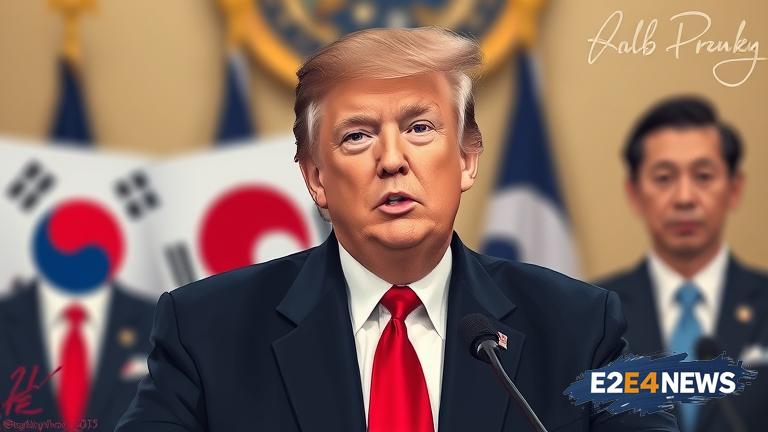The former President of the United States, Donald Trump, has recently spoken about his involvement in inter-Korean relations, emphasizing the significant role he played in bringing about a thaw in tensions between North and South Korea. Trump’s comments come as he reflects on the 2018 Winter Olympics, which were held in Pyeongchang, South Korea. The event marked a notable moment in diplomatic efforts, as it saw the participation of North Korean athletes and the presence of high-ranking officials from the North. Trump has claimed that his administration’s efforts helped to facilitate this breakthrough, citing his personal relationship with North Korean leader Kim Jong-un as a key factor. The 2018 Winter Olympics were seen as a major success, with the two Koreas marching under a unified flag and fielding a joint women’s ice hockey team. The event also saw the attendance of Kim Yo-jong, the sister of Kim Jong-un, who extended an invitation to South Korean President Moon Jae-in to visit the North. Trump’s administration had been instrumental in applying pressure on North Korea through economic sanctions and military posturing, which some argue helped to bring the regime to the negotiating table. However, others have credited the diplomatic efforts of the South Korean government, as well as the behind-the-scenes work of other international actors, for the breakthrough. Despite the progress made, tensions between the US and North Korea have continued to fluctuate, with the two sides engaging in a war of words over issues such as denuclearization and missile testing. The 2018 Winter Olympics were also notable for the attendance of Ivanka Trump, the daughter of the former President, who led the US delegation to the closing ceremony. Her presence was seen as a symbol of the US commitment to diplomatic efforts on the Korean Peninsula. In the years since the Olympics, there have been ongoing efforts to improve inter-Korean relations, including the establishment of a joint liaison office and the holding of several summits between the leaders of the two Koreas. However, progress has been slow, and the situation remains fragile. The international community continues to call for the denuclearization of the Korean Peninsula, and for a lasting peace to be established. The US has maintained a significant military presence in South Korea, and has continued to provide economic and military aid to the country. China, which is North Korea’s main ally, has also played a key role in diplomatic efforts, with President Xi Jinping meeting with Kim Jong-un on several occasions. The European Union has also been involved in efforts to promote peace and stability on the Korean Peninsula, with the EU’s High Representative for Foreign Affairs and Security Policy, Federica Mogherini, visiting the region in 2018. As the situation on the Korean Peninsula continues to evolve, it remains to be seen what the future holds for inter-Korean relations. One thing is certain, however: the 2018 Winter Olympics marked a significant moment in diplomatic efforts, and will be remembered as a time of hope and possibility for the region. The event showed that, even in the face of deep-seated tensions and divisions, it is possible for nations to come together in the pursuit of peace and understanding. As the world continues to navigate the complexities of the Korean Peninsula, it is clear that diplomatic efforts will be crucial in shaping the future of the region. The role of international actors, including the US, China, and the EU, will be closely watched, as will the actions of the two Koreas themselves. Only time will tell if the progress made in 2018 will be built upon, or if the region will once again be plunged into tension and uncertainty. For now, however, the 2018 Winter Olympics remain a powerful symbol of what can be achieved through diplomacy and dialogue.
